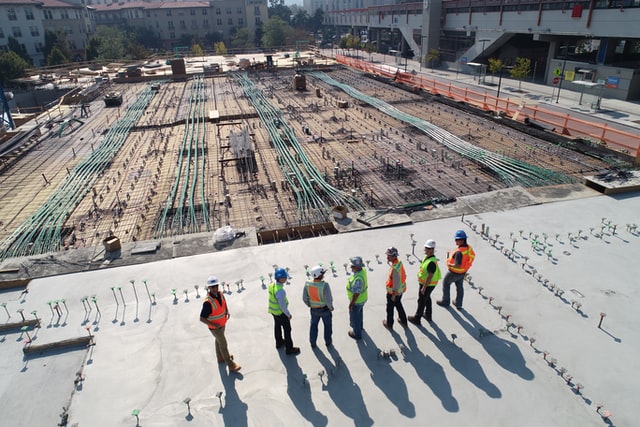|
By Attorney Edward Jesson In most counties in North Carolina (if not all), every case filed in District or Superior Court there will require some form of mandatory alternative dispute resolution (“ADR”). Generally speaking, if a case is filed in District Court the alternative dispute resolution method will be arbitration. If a case is filed in Superior Court, the alternative dispute resolution method will be mediation. Further, many contracts contain provisions that provide if a dispute arises the aggrieved party must submit their claim to arbitration instead of or before filing a lawsuit. Mediation A third-party neutral person (the mediator) is selected by the parties involved in the dispute, or, if the parties cannot reach an agreement, appointed by the Court. Generally, the mediator will be a local attorney selected by the parties for his or her expertise in the law that is in dispute. While participation in court ordered mediation is mandatory, the nature of mediation means that the mediator cannot force the parties to resolve their dispute, the mediator can only make his or her best effort to get the parties to compromise. Most of the time, the parties will each have the opportunity to give an opening statement and discuss the case together in the same room. Then the parties will move into separate rooms and the mediator will go room to room, discussing the strengths and weaknesses of each party’s case trying to broker a deal to settle the dispute. If the parties come to an agreement, that agreement is reduced to writing and will typically be enforceable by the court. However, if the parties cannot come to an agreement, the mediator cannot force the parties to settle. The mediator is only there to facilitate a negotiation as opposed to being there to decide the case. Arbitration In contrast, the arbitrator is there to decide the case. The arbitrator will decide which party is entitled to relief and what that relief is based on the claims presented. The arbitrator, in effect, gets to act like a privately hired judge and jury in deciding points of law and factual issues based on witness testimony. In North Carolina District Court, the parties are ordered to an early arbitration which is limited in time to one hour. At the end of that hour, the arbitrator (who is appointed by the court from a panel) decides who “wins” the case. It is important to note that in mandatory district court arbitration, if one party disagrees with the decision (which almost always happens), that party can appeal the arbitrator’s decision, and the parties will simply continue with the litigation process.
That is in stark contrast to voluntary arbitration: In voluntary arbitration, the arbitrator (again, selected by the parties for his or her expertise in law being contested) is permitted to make a final decision, and, absent a very limited set of exceptions, the arbitrator’s decision is final and can generally be enforced by the court if need be. Often, contractual arbitration is governed by the American Arbitration Association (“AAA”). AAA has a certain set of rules and requires the parties to select arbitrators from certain “panels.” While one advantage of arbitration is often said to be that it is more cost effective than litigation, that is not always the case, especially if you get involved with three arbitrator panels from the AAA or for particularly complex cases. Like most things involving disputes and dispute resolution, there is no “one size fits all” approach. If you, your business, or someone you know, is involved in a legal dispute, it is best to seek counsel of an attorney that has experience dealing with that specific type of dispute. As always, the attorneys at Jesson & Rains, PLLC are ready and willing to help!
2 Comments
By Attorney Edward Jesson
Most people in the construction industry are at least partially familiar with the Mechanic’s Lien statutes in North Carolina. For those that are not familiar with them, you can always get a refresher from our previous article, “Construction Liens 101”. While most people understand that a general contractor, or sub-contractor, or a sub sub-contractor (and so on) may generally be entitled to at least some sort of lien on property if they are not paid, most people are surprised to learn that contractors aren’t the only ones entitled to a lien. The applicable North Carolina statute states that: Any person who performs or furnishes labor or professional design or surveying services or furnishes material or furnishes rental equipment pursuant to a contract, either express or implied, with the owner or real property for the making of an improvement thereon shall, upon complying with the processions of this Article, have a right to file a claim of lien on real property . . . . As you can see, the definition of persons who can claim a mechanic’s lien is broad and is not just limited to those actually performing construction work. Those who provide materials (e.g. concrete suppliers, lumber suppliers) are entitled to mechanic’s liens if they do not receive payment. Likewise, those who provide rental equipment can file mechanic’s liens if they do not receive payment. This can be especially troubling for a general contractor, as often, the material suppliers and rental equipment businesses are several rungs down the contractual ladder from the general contractor or owner. Similarly, those who provide professional design or surveying services are entitled to a mechanic’s lien if they don’t receive payment. North Carolina law provides that design services encompasses both architects and engineers. Of course, not everyone involved in a construction project is entitled to a direct lien on the real property: only those who have a contract with the owner of the real property are entitled to a direct lien (subject to limited exceptions). Those further down the contractual chain are generally only going to be entitled to a subrogated lien (again, subject to certain exceptions). It is incredibly important when involved in any construction project, whether you’re on the owner’s side or the construction/design side, to make sure that everyone down the chain is getting paid for the work that they are performing. Even if a supplier of a sub-sub-contractor doesn’t get paid, that can cause costly legal issues should they seek to file a lien at a later date. The attorneys at Jesson & Rains can assist if liens are filed and protect against liens being filed in the first place. Please give us a call if you need assistance! Asset Protection in North Carolina - What can you do to protect your assets from your creditors?8/13/2020 By Attorney Kelly Jesson Creditors come in all shapes and sizes: ex-spouses, bankruptcy, personal and business debts, and claims involving real estate or professional malpractice. People in high risk professions or who deal with circumstances that are prone to litigation sometimes want to take steps to protect assets. However, this must be done before a dispute arises, because moving assets around afterwards can sometimes be deemed a fraudulent conveyance and voided by a court.
Unfortunately, there is no “magic wand,” and protecting assets oftentimes involves investing your earnings into protected accounts, such as life insurance and retirement. An individual’s retirement account is exempted from their own creditors (but not from a beneficiary’s creditors once the assets are inherited, which will be discussed in the next blog dealing with asset protection in estate planning). The cash value of a life insurance policy is also protected from the insured’s creditors, but again, not from a beneficiary’s creditors once the assets are inherited. Additionally, the state of North Carolina exempts certain amounts of property from creditors:
One of the most important things you can do is title property as “tenants by entireties” (TBE). If a husband and wife purchase property together, by default, it is owned as TBE and is therefore protected from the creditors of just one of them, meaning a lien will not attach. However, if a creditor gets a judgment in both spouses’ names, a lien can attach. Also, if the spouses divorce or one passes away, a lien can attach if the remaining owner is the debtor. Another alternative or high-risk professionals is to have the low-risk spouse own the majority of assets because they will not be responsible for debts unless joint. Another really important step is for self-employed people to form businesses and formalize businesses to protect assets. If you follow business formalities, business creditors cannot reach your personal assets for business debts. If you own investment properties, you are running a business. In fact, the definition of “operating a business” is pretty loose, and oftentimes people will move high-value assets over to LLCs for asset protection purposes. Again, you must follow business formalities (set up a tax identification number, maintain a separate bank account, have an operating agreement). If you own a business but you have personal creditors, those cannot reach assets titled in the name of your business. They are limited to collecting only the distributions you receive from the business, which you control as the business owner. Distributions do not include your pay made through payroll, which is another reason to run your business like a business. Finally, we’re often called by people to set up trusts to avoid creditors. General living trusts or revocable trusts are not protected from creditors of the grantor (the person who sets it up), although the funds could be protected from beneficiaries’ creditors after the grantor dies (the subject of our next blog). North Carolina residents have a few not-so-great options: First, they can set up an irrevocable trust for the benefit of others. For example, if you are married, you can create an irrevocable trust that benefits your spouse for his or her lifetime. Presumably, your spouse will take care of you while you’re married, so you will indirectly have access to the money you put into the irrevocable trust, although on paper it will no longer belong to you, so your creditors cannot reach it. This obviously has risks, but it is an option. Another option is an asset protection trust. In an asset protection trust, the trustee has discretion to distribute money to the grantor as well as other beneficiaries. These trusts are not valid in North Carolina, although they are available in seventeen other states and other countries. However, North Carolina residents can pick the situs (jurisdiction) of their trust and where the trustee is located, meaning, for example, that you can state that Georgia law applies to your trust even though you live in North Carolina. However, lawmakers in North Carolina have questioned whether this practice is valid for asset protection trusts, and, therefore, there are some risks involved. Of course, transferring funds to another country is always risky. If you are interested in implementing any of the above ideas in order to protect your assets, please give the attorneys at Jesson & Rains a call! By Attorney Edward Jesson
Hearings were recently scheduled on a proposed North Carolina state bill entitled “An Act to Provide Consumer Protections Related to Roofing Repair Contractors.” If passed, the law would have a big effect on the roofing industry in North Carolina--written contracts between roofing contractors and consumers would now be required. The proposed bill would require the following provisions to be included in these contracts: 1. The roofing contractor’s contact information; 2. The name of the consumer; 3. The physical address of the property being worked on and a description of the structure being repaired; 4. A copy of the repair estimate that addresses: a. a precise description and location of all the damage being claimed on the repair estimate; b. an itemized estimate of repair costs, including the cost of raw materials, the hourly labor rate, and the number of hours for each item to be repaired; and, c. a statement as to whether the property was inspected prior to the preparation of the estimate and a description of the nature of that inspection. 5. Date the contract was signed by the consumer; 6. A statement that the contractor shall hold in trust any payment from the consumer until the materials have been delivered to the job site or the majority of the work has been done; 7. A statement providing that the contractor shall provide a certificate of insurance to the consumer that is valid for the time during which the work is to be performed; 8. If the consumer anticipates that insurance funds will be used to pay for any portion of the job, a disclosure from the consumer that states that the consumer is responsible for payment if the insurance company denies the claim in whole or in part and a disclosure from the contractor that he or she has made no guarantees that the claimed loss will be covered by an insurance policy. The new law, if passed, will also give the consumer the right to cancel the contract if the consumer’s insurance company denies the claim. Further, it will prohibit various practices from roofing contractors, including offering to pay insurance deductibles for the consumer or offering the consumer anything of value in order to display a sign or any other type of advertisement at the consumer’s property. It is important to note that the proposed law specifically excludes licensed general contractors or subcontractors working underneath a licensed general contractor from the definition of “roofing repair contractors.” While the new law would create an extra requirement that roofing contractors in NC may not be happy about, we always recommend having written contracts in place between contractors and the consumer. Too often the only written documentation is a cost estimate and, if there are any disputes, there are no provisions in these cost estimates for handling those disputes. The proposed law may also strengthen the reputation of the roofing industry by weeding out unscrupulous roofing contractors. Jesson & Rains will continue to keep our clients updated on the passage of this law and are happy to assist with the drafting or review of any construction contracts. You can follow the status of the law yourself at: https://www.ncleg.gov/BillLookup/2019/S576. By Attorney Kelly Jesson
Business owners around the country are starting to reopen their businesses up to employees and customers. However, regardless of government announced “phases,” businesses owe a duty to their employees and customers to keep them safe while on the premises. Lawsuits are starting to pop up, according to Market Watch. What can you do to limit your potential liability? Businesses should follow healthcare and government recommendations, such as wiping down surfaces, frequent hand washing, wearing masks, socially distancing, etc. These recommendations sometimes change, so business owners should stay abreast of updates. Keeping your employees from getting sick on the job in the first place is key: in a worker’s compensation case, all the worker has to do is prove they were injured on the job and there’s a causal connection between the two. For example, a grocery store cashier may have a claim due to exposure to the public. A worker’s compensation claimant does not need to prove that the business was negligent. For businesses that don’t have a large volume of public traffic (such as law firms), owners may ask patrons to sign a document before coming into the premises stating that they do not have COVID-19, are experiencing no symptoms, and they have not been around anyone with COVID-19 or who has otherwise been experiencing symptoms. While patrons can, of course, lie on these forms, at least it’s one additional step that business owners can show that they are taking to protect their employees and other customers. Showing that you are taking the necessary steps to keep people safe is important in defense of personal injury lawsuits, where the plaintiff has to show not only causation (that they caught COVID-19 at your business) but negligence (that you failed to act with reasonable care). A defense to a negligence action is “assumption of risk.” Some business owners may ask patrons to sign waivers of claims, saying that the patron is “assuming the risk” of contracting COVID-19 by coming to their establish. For example, someone who voluntarily eats at a restaurant or goes to a nail salon knows that there is a risk that they may be infected, and a business is not guaranteeing 100% that they will not be infected, because there’s no way to do that. Governor Cooper provided business owners with extra protection a couple of weeks ago when he signed the Coronavirus relief bill. The act provides for limited liability for businesses deemed “essential” under the Governor’s prior stay-at-home order. If an employee or customer gets COVID-19 from spending time at an essential business, the business is not liable for damages unless it is “grossly negligent” or worse. Gross negligence is a higher standard than simple negligence. Instead of a plaintiff showing the absence of reasonable care in a negligence lawsuit, a plaintiff would have to show the conscious disregard for reasonable care to prove that a business was grossly negligent. While essential businesses should be comforted by this law, we are of the opinion that this should not change how they do business. In fact, if they consciously fail to abide by social distancing and cleaning protocols, they could arguably be grossly negligent. If you have any questions about how to prepare your business for reopening, give Jesson & Rains a call! By Attorney Edward Jesson
This week’s article deals with the responsibilities that contractors have with regards to the actual design of the building, which necessarily includes the building’s structural system. Generally, the contractor responsible for building the project, be it new construction or otherwise, is not responsible for the design aspects of the project unless we are talking about a design-build project. The design aspects will usually fall to a “design team,” often comprising of some combination of architects and engineers. Or, more often in the residential setting, the owner will provide plans and specifications to the contractor. The following problem has come up time and time again: a general contractor finishes work on a project, built perfectly to the plans and specifications, only to find out that the plans and specifications were defective in some way, which has then caused issues with the final project (at the extreme end, these issues could be structural, rendering the completed project unfit for purpose). Invariably, on discovery that the project has some serious issues, the project’s owner will first turn to the general contractor to “fix it.” Of course, if “fixing it” involves starting from scratch, neither the owner nor the contractor wants to come out of pocket to pay for that. Legally speaking, the courts throughout the United States have created a doctrine whereby the project owner impliedly warrants that the information, plans, and specifications that an owner provides to the general contractor are fit for purpose. In a residential setting, even if the owner used a design team, if the owner provided plans and specifications to the contractor, this doctrine would likely still apply. This doctrine is known as the Spearin Doctrine and arises from the case United States v. Spearin, which was argued in the United States Supreme Court in 1918. What this essentially means is that, so long as the contractor complies with the plans and specifications supplied to it by the project owner, the contractor cannot be held legally responsible for structural defects if those plans and specifications are not adequate for the specific project. Contrast this, for example, with a design-build project, where the contractor or its consultants are partially responsible for the design aspect of the project, and you can see how Spearin would likely be inapplicable to those circumstances. There are, of course, exceptions to this general rule. For example, if there is an express term contained in a contract that the contractor is responsible for any design defects, then it is likely that a contractor in that situation could be held legally responsible. Another exception is that of “reasonable reliance,” which means that if a design defect is so glaringly obvious that it could not be missed, a contractor would not then be able to later claim that they relied on the plans in order to avoid liability. While generally not directly responsible for the design of structural systems (or, indeed, other areas of a project), that does not mean that a contractor cannot be held liable for deficiencies in the design. The best protection against issues such as the ones presented in this article are written contracts in place between all parties to a construction project, including the design team, and not just between the owner and general contractor. |
Subscribe to our newsletter.AuthorKelly Rains Jesson Categories
All
Archives
April 2024
|
|
SERVICES |
SUPPORT |
©Jesson & Rains, PLLC ALL RIGHTS RESERVED.







 RSS Feed
RSS Feed

